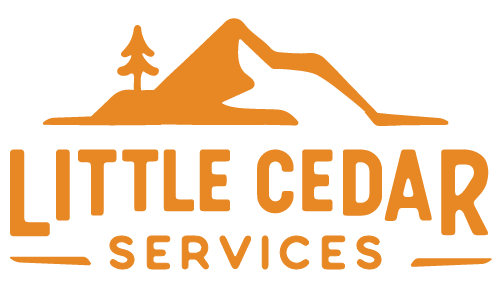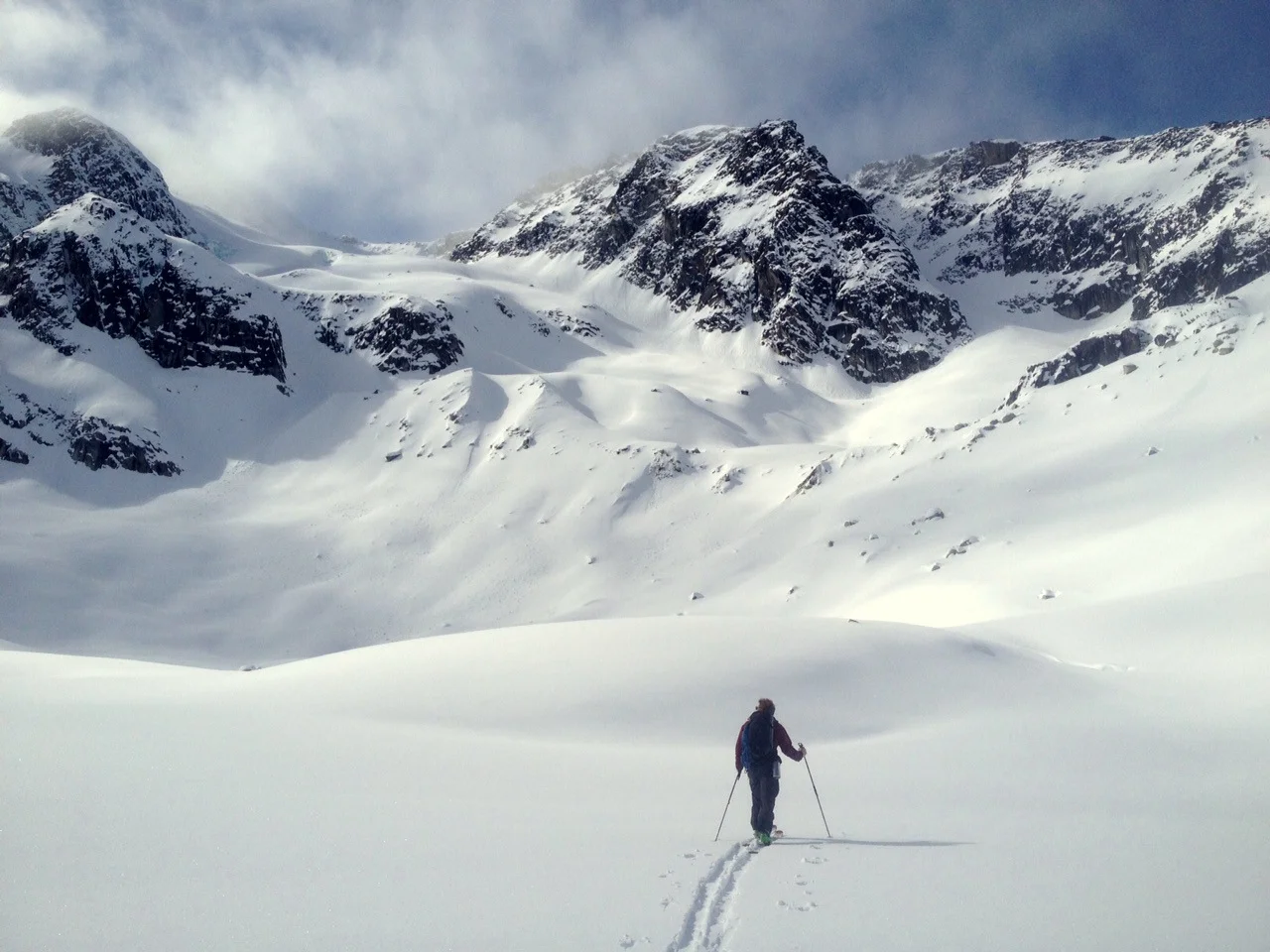Avalanche Skills Training Level 2
Book→
The Avalanche Skills Training Level 2 Course is designed to build off of the AST 1 Avaluator based decision making framework. This 3 or 4-day, 4 evening course introduces the subject from the ground up and gives students solid foundational knowledge. This course utilizes Avalanche Canada’s Avalanche Skills Training - Level 2 Course (AST-2) curriculum and is a key step in developing the skills needed to travel safely in the winter backcountry environment.
Dates (2021/22 season)
Classroom Sessions: 4 sessions, 6 – 10 pm
Field Days: 3 or 4 full days; usually Friday-Monday
Cost: $775 + GST ($900 + GST for Snowmobile Courses)
• Students must supply their own lift passes to the top of Shames Mountain for all field days
• Students are responsible for their own transportation to and from field locations
• Students must supply their own personal equipment (see equipment list)
• Food and drinks are not included
Bookings and Cancellations
Call our office at (250) 641-2469 as far in advance as possible. 2 weeks is the minimum. A 50% deposit is required to confirm your booking. The balance is payable 1 week prior to the course start date. Cancellations less than 30 days from start date forfeit any deposit paid, cancellations less than 14 days from course start date forfeit full payment. Any changes to a booking will incur a $30 administration charge.
AST 2 courses include:
• Instruction by Canadian Avalanche Association Profession Members
• Avaluator 2.0
• Avalanche Canada’s curriculum
• Tremper’s Staying Alive in Avalanche Terrain
• LCS & Avalanche Canada-developed course materials
• Industry recognized AST-2 Certificate of Completion
Prerequisites
AST 1 and a minimum of 30 backcountry touring days are required for this course; advanced or better skiing/snowboarding ability is required. Moderate to high level of fitness is required as we will be planning and executing full day tours. Touring equipment is required, see equipment list. Participants should be comfortable with their touring equipment and be prepared to spend full days in the backcountry.
Location
The classroom sessions are held in the evening and typically on Zoom from 6 to 10 pm. Location will be announced shortly before the course start date if it is to be held in person.
The 4 field days are spent at a variety of field locations based from Terrace, often at Shames Mountain just 30 minutes West from Terrace.
Guides and Instructors
Our instructors are excellent educators; experienced in teaching these skills and conducting well run, professional courses. All Instructors on the AST 1 courses are at least Active Members of the CAA (Canadian Avalanche Association) while the course leader is a Professional Member of the CAA.
Itinerary and Objectives
This course focuses on teaching practical methods of understanding, recognizing and avoiding avalanche hazards, including terrain evaluation, snowpack structure, weather, safe route finding and avalanche rescue techniques.
The following are targeted learning outcomes for AST-2 course:
• Develop trip planning skills using Avalanche Canada’s tools in addition to Google Earth, FatMAP, ect.
• Develop avalanche character recognition and apply it to the avalanche hazard/risk assessment process.
• Use the Avaluator™ as a decision-making tool in areas where trips are rated using the Avalanche Terrain Exposure Scale (ATES) and where Avalanche Danger Ratings and Avalanche Bulletins are available.
• Get the opportunity for leadership by swapping leads with other students at the front of the group.
• Use appropriate travel techniques in avalanche terrain.
• Execute multiple burial companion rescues.
Logistics and Transportation
Students are responsible for their own transportation, accommodation, food and equipment as listed.
We encourage students to ride share on all courses but cannot guarantee that a ride will be available. Field locations are flexible based on snow conditions and availability of snowmobiles.
Students are encouraged to stay in Terrace for the field days of this course in order to minimize driving times to/from course areas.
Due to the variability of snow and weather conditions, we cannot guarantee that the course will be held in the locations stated, or conducted in the same order as listed.
Equipment list
The following personal equipment is required
• Touring skis; splitboard; or, snow shoes and snowboard. Alpine Trekker touring inserts for alpine skis are acceptable if you are experienced with them
• Boots - touring boots appropriate to your bindings. Regular alpine boots may be fine as long as they are not a tight fitting race boot
• Poles
• Climbing skins for skis or split board
• Lightweight avalanche shovel and probe
• Avalanche transceiver (Digital, 3 antenna with a mark function*)
• Daypack, approx 30 liters capacity suitable for carrying all required gear. Snowboarders must have a pack that can hold a snowboard for the ascents
• Hard shell outer layer jacket with hood - Gore-Tex
• Outer shell pants or bibs - Gore-Tex style recommended for ventilation while touring
• Personal NON-COTTON clothing layers that are adjustable and suitable for all conditions
• Gloves plus one pair extra
• Warm parka - down, fleece or pile
• Sweater or vest - wool, fleece or down
• Toque/warm hat - wool or fleece
• Sunglasses
• Ski goggles
• Misc. personal items (camera, pocket knife, lighter etc.)
• Water bottle / thermos with hot drink- min. 1 liter
• Lunch
• Any snow observation equipment you may have though this will be available to borrow from the instructors
If you don’t have some of these items, please call so we can assist in the purchase of appropriate gear.
* Avalanche Canada only endorses transceivers that are triple antenna with at least a single-burial marking function. Ensure any beacon you purchase has these functions. We will not stop you from taking an avalanche course if you bring an old transceiver but out of respect to other participants we will not slow our curriculum to teach old techniques or to wait for slow search times.
Please go over this list before the course to ensure that you are properly prepared. Contact our office if you have any questions, and we can suggest places for you to purchase or rent equipment if needed. Keep in mind that you will be spending all of your time outdoors in the snow in cold conditions (-5 to 20), and that the weather can vary from one extreme to the other. It is recommended that you also have a set of spare street clothes for the end of the course after you have left the mountains.

